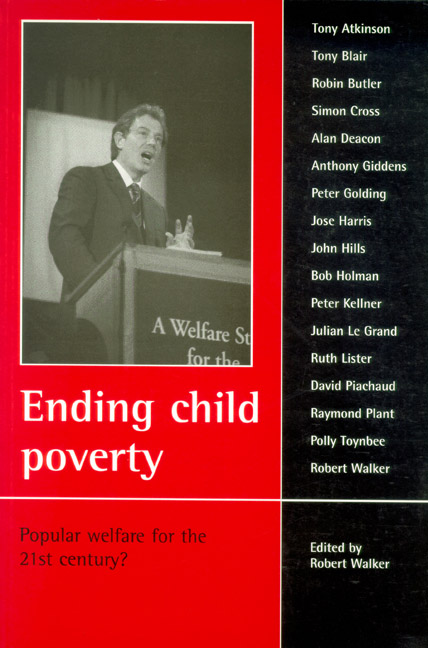4 - Beveridge and the 21st century
Published online by Cambridge University Press: 05 July 2022
Summary
What William Beveridge would have proposed for a welfare state for the 21st century is hard to assess. He was a man of great complexity, driven by conflicting forces, which meant that his recommendations were far from consistent. His motives were often mixed: he supported family allowances both to help poor families and to keep down wages. The man who in 1938 warned that Britain could only compete in the world economy if it cut wages was the same person whose report in 1942 launched a crusade against the ‘five giant evils’ haunting Britain of ‘Want, Disease, Ignorance, Squalor and Idleness’, and whose 1944 Report on Full employment in a free society was prefaced with the saying that ‘misery generates hate’. (These contrasts are highlighted in the Introduction to Harris’ biography on Beveridge – Harris, 1977.)
One can be confident, however, that Beveridge’s views would have evolved. He would be profoundly irritated by any assumption that his recommendations of 1942 would be just as applicable in 2002 or 2042. His own views changed frequently over time in response to changing problems and circumstances. This is well illustrated by the new Prologue to Full employment in a free society (Beveridge, 1960) written 16 years after the report appeared. In this new prologue of 1960 he was quite clear that the major problem facing Britain in the 1960s had become inflation, not unemployment. The issues had moved on, and his thinking moved on with them. He welcomed new problems and sought new solutions.
How might Beveridge have seen the challenges of the next century? Four suggestions are made here.
Social policy has to be integrated with economic policy
For Beveridge, the economic context was essential. He was not a person who saw economic and social policy as in distinct compartments. He would have deplored the trend of the post-war period to separate these two areas of policy making, with macro-economic policy being conducted on the assumption that any adverse consequences for poverty or social exclusion could be dealt with by an accommodating social policy. Beveridge was a ‘joined-up’ social scientist, who understood macro-economics as well as social administration. He would no doubt have welcomed today’s involvement of the Treasury in anti-poverty policy, and the view that all aspects of government policy are relevant in the fight against social exclusion.
- Type
- Chapter
- Information
- Ending Child PovertyPopular Welfare for the 21st Century?, pp. 29 - 34Publisher: Bristol University PressPrint publication year: 1999
- 2
- Cited by



